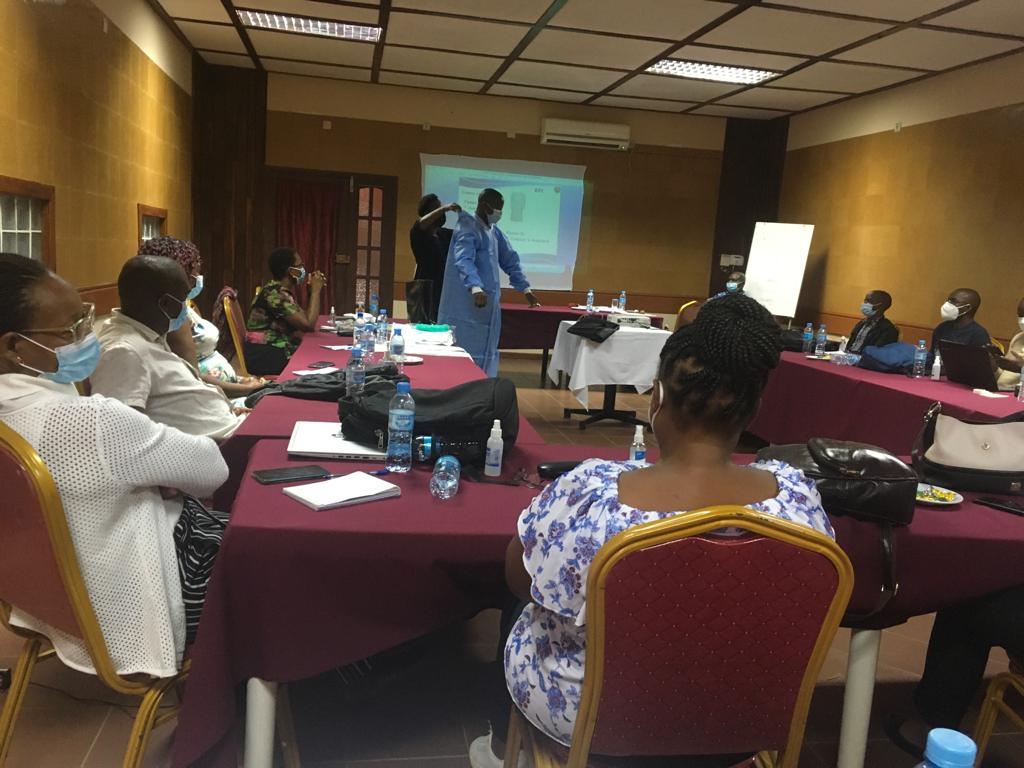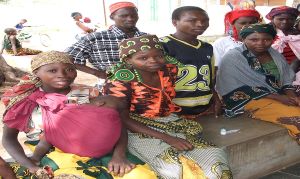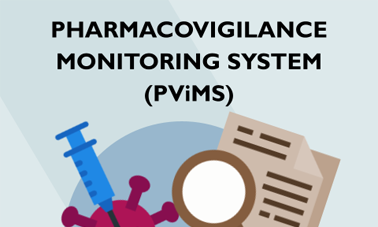Country Landscape and MTaPS’ Support
Shortly after COVID-19 was declared a global public health emergency, Mozambique quickly set up a national task force to coordinate government entities’ and health partners’ responses and designated 21 health facilities as COVID-19 treatment centers. However, those centers and other health facilities were not equipped to handle a stream of COVID-19 patients. Workers were not trained on case management, COVID-19-specific infection prevention and control (IPC), or proper waste management. Mozambique’s IPC commodities supply chain, including critically needed personal protective equipment (PPE), also required reinforcement to handle the surging demand. USAID MTaPS assisted Mozambique's Ministry of Health (MOH) on COVID-19 IPC program management and strategizing emergency supply chain management. The interventions enabled MOH to set up a sustainable system that maximized the number of IPC-trained health care workers in a short time and helped improve stock status of PPE and other commodities through the pandemic.
Currently, MTaPS is supporting MOH in the implementation of its national COVID-19 vaccine deployment plan and to achieve its target of immunizing 54.6% of its population. Approximately 45% of its people are fully vaccinated against COVID-19 as of July 2022. MTaPS is working with Autoridade Nacional Reguladora de Medicamento (ANARME), the national medicines regulatory authority, to establish pharmacovigilance for COVID-19 vaccines to ensure patient safety and maintain the trust of its population in the vaccine—critical to achieving the national immunization target.

Donning and doffing of PPE being demonstrated to health care workers Photo credit: Benedito Toalha, MTaPS Mozambique
Select Highlights
Infection Prevention and Control (IPC)
- Developed a comprehensive training package for trainers and health care workers on COVID-19 IPC, health care waste management, and WASH practices, including guidelines, videos, and job aids for health workers
- Enhanced e-learning platform and developed six interactive e-learning modules on IPC and emergency supply chain management and handed over to MOH, strengthening the country’s emergency response system beyond the pandemic
- Developed and distributed educational materials at targeted health care facilities, raising awareness of patients and visitors
- Established IPC training teams in all 11 provinces and capacitated 74 master trainers, who cascaded the training to thousands of health care workers by October 2020
- Improved IPC compliance at 21 COVID-19 centers and 96 health facilities, innovating use of a facility-level IPC scorecard adapted from the WHO checklist to assess a facility’s IPC performance and create performance improvement plans. Jumping to 86% compliance of COVID-19 centers from 10% by October 2020, the MTaPS-established monitoring and improvement process continues to be in use, institutionalizing continuous IPC quality improvement.
Indicators as of September 2023

6601
Number of workers trained on
COVID-19-related IPC and/or WASH

128
Number of health facilities supported for IPC and/or WASH for COVID-19

6
Number of COVID-19 e-learning modules developed
Emergency Supply Chain Management
- Produced an emergency supply chain management strategy and key interventions, such as a data collection and reporting system to inform decisions on IPC commodities supply
- Supported MOH to generate a weekly stock status report and update the COVID-19 commodities supply plan with it to meet the changing needs of the pandemic
- Helped form provincial-level technical working groups to coordinate emergency supply chain activities, facilitating responsive stock management at the local level
COVID-19 Vaccine Pharmacovigilance
- Supporting the establishment of monitoring and reporting of adverse events following immunization (AEFIs) against COVID-19. Progress includes:
- Proposing pharmacovigilance options that are sustainable in limited financial and human resource settings. Concept submitted on targeted spontaneous reporting was under consideration by ANARME. Final MOH’s decision is awaited.
- Development of data collection forms, workflow, standard operating procedures, and a tool for situational diagnosis of COVID-19 vaccination centers
Next steps are to focus on:
- Adapting PViMS, an electronic pharmacovigilance tool developed with USAID support to collect and manage data
- Building technical capacity to detect, report, and monitor AEFIs at all levels
Partners include:
- Ministry of Health
- Autoridade Nacional Reguladora de Medicamento (ANARME)
- Programa Alargado de Vacinação
- Africa Centres for Disease Control and Prevention
- WHO


